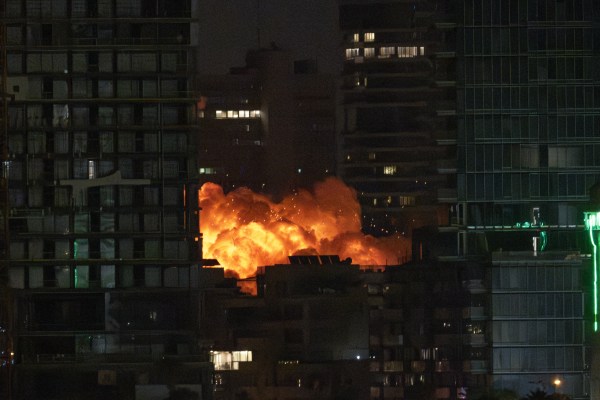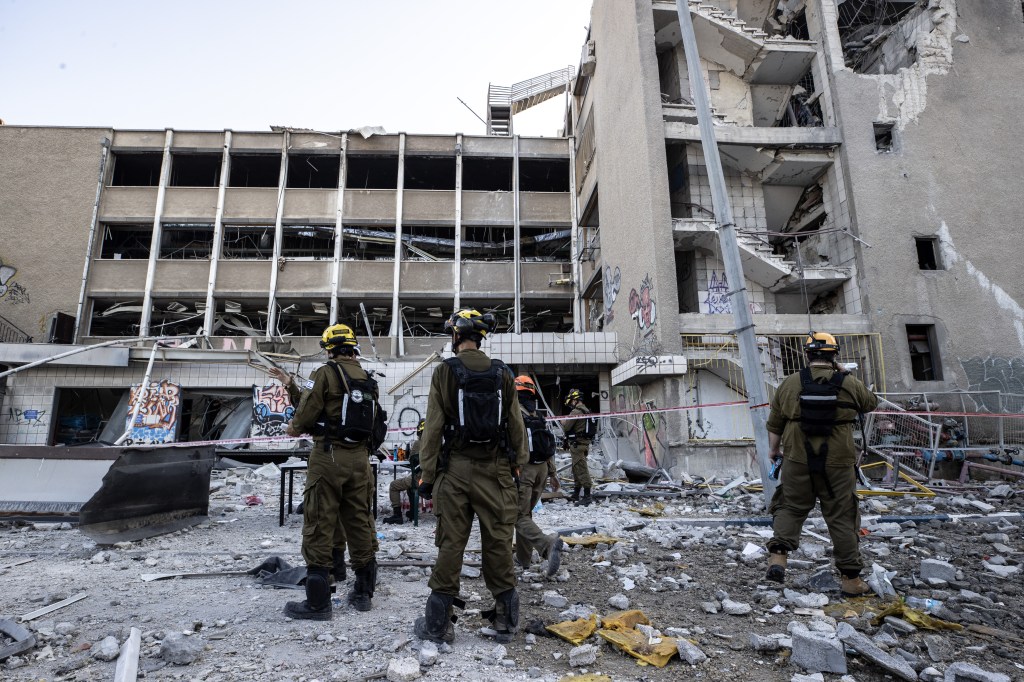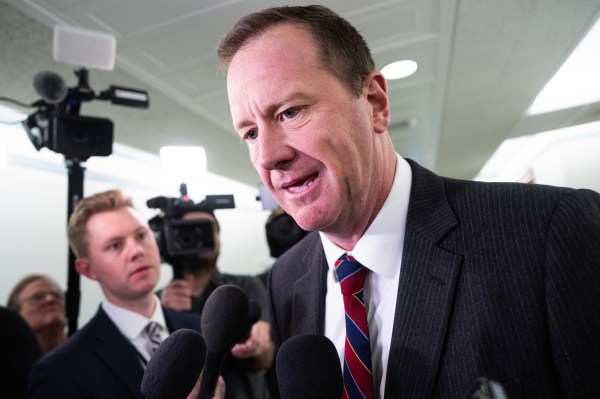Hello and happy Saturday. The war between Israel and Iran entered its second week, with Israel continuing to strike Iranian nuclear facilities and military leadership. On Thursday, an Iranian missile hit an Israeli hospital in Be’er Sheva, and Saturday Israel claimed to have taken out Mohammad Saeed Izadi, an Islamic Republic Guard Corps Quds Force commander who Israeli Defense Minister Israel Katz said financed and armed Hamas ahead of the October 7, 2023, massacre in Israel.
What happens in the Middle East rarely stays in the Middle East, however, and the Iran-Israel conflict quickly overtook other issues here in the United States. President Donald Trump was in Alberta, Canada, for the G7 summit on Sunday and Monday, where world leaders were expected to discuss trade issues and the war in Ukraine, but departed early, saying he needed to return to Washington to manage the crisis.
While the big questions in the first days after Israel attacked Iran on June 13 were about how much the United States knew of Israel’s plans and whether the president had endorsed the strikes, a larger question looms now: Will the U.S. get involved?
That’s a question that may go unanswered in the near term, as Trump said Thursday that he would take up to two weeks to decide whether the U.S. would strike Iran’s nuclear sites in support of Israel. That was a considerably cooler tone than he was taking earlier in the week. On Monday, he warned Iranians to evacuate Tehran, and he said Tuesday that he wanted a “real end” to the conflict.
So, should the U.S. respond militarily? One of Iran’s nuclear enrichment sites, Fordow, is buried hundreds of feet underground, and it is unclear whether Israel could take it out without bunker buster bombs, which the U.S. has but Israel does not. Jonathan Ruhe, foreign policy director at the Jewish Institute for National Security of America, pointed to Israel’s early success and argued that if Iran is as close to a nuclear weapon as Israel claims, “An American decision to strike Iran’s facility at Fordow would be necessary, but also insufficient, to reliably prevent nuclear reconstitution and achieve the president’s goal of ‘a real end’ to the conflict.”
In a column published Friday, Kevin Williamson laid out Trump’s options:
If Trump is true to character—and, tragically for him, it seems he is incapable of being otherwise—then his inclination will be to let someone else do the hard work and bear the risk. But an Israeli failure to truly gut the Iranian nuclear program would be a catastrophe for the United States, too—not to mention another failure on the part of the Trump administration to deliver on its promises. One way to look at the choice is between escalation and de-escalation; another way of looking at it is escalating the conflict with Iran before it has nuclear weapons or risk needing to reconsider the question after Tehran has acquired them.
The possibility that the U.S. might directly enter the conflict with Israel is causing problems within Trump’s own coalition, as isolationists such as Fox News host Tucker Carlson and former Trump adviser Steve Bannon have spoken out vociferously against U.S. involvement. In Boiling Frogs on Tuesday, Nick Catoggio predicted that most of the Republican base will support Trump, and he suggested a way for Trump to win over skeptics.
When Trump says that a regime whose leadership preaches “death to America” and is notorious for terrorist attacks beyond its borders can’t be trusted with a nuclear weapon, he’s not just showing common sense. He’s bringing the meaning of “America First” into line with Republican voters’ desire for ruthlessness toward enemies. His presidency, premised as it is on “retribution,” is threatening retribution for Iran. MAGA’s belief that its opponents have it coming, whatever “it” might be, is justified for once.
That’s not a coalition that’s at risk of fracturing.
John McCormack headed to Capitol Hill to find out where lawmakers stand on the issue, and he reported that, for now at least, Trump is winning the argument. Sen. Josh Hawley told him that “the president has handled this very deftly.” John also noted that Sen. Ted Cruz sparred with Carlson on the latter’s podcast, saying that“military support is most needed is Fordow.”
Trump’s robust verbal support for Israel’s strikes has even caused a schism within his administration. While Trump was returning from the G7, a reporter aboard Air Force One asked him about Director of National Intelligence Tulsi Gabbard’s congressional appearance in March, when she said U.S. intelligence indicated that Iran was not building a nuclear weapon. “I don’t care what she said,” Trump responded. “I think they were very close to having one.”
Gabbard has long argued for a reduced U.S. presence internationally, and had already angered Trump by releasing a video on social media the week before last warning about the dangers of nuclear war and saying “warmongers are carelessly fomenting fear and tensions between nuclear powers.” Michael Warren reported Friday that it’s not just the president who’s grown frustrated with the DNI.
The video was, in a word, weird. That’s what those on Capitol Hill focused on intelligence issues certainly thought, I’m told. Why is the DNI, who heads the multi-agency intelligence community and produces the presidential daily brief, weighing in on a defense policy decision from nearly a century ago? Why is she using time and resources to produce this glossy video that appears to be unconnected to any policy goal of the administration or the president she serves?
Gabbard has tried to argue that her congressional testimony in March, of which Trump was so dismissive, actually aligns with the president’s recent statements. Peter Gattuso assessed her claim as false in a Dispatch Fact Check.
That’s a lot to catch up on. But don’t miss the other stories we covered this week, highlighted below. Thank you for reading!

Schrödinger’s Presidency

How Long Will the Border Stay Quiet?

Why We Care About Israel
Best of the rest

America’s Most Successful Defeat

The Man Who Goes Unnoticed

Texas’ App-Store Age Verification Law, Explained

Democrats Shout ‘No Kings,’ but Maybe They Need One

Homeschooling Against the Machine

From North Korea, a Messenger


Trump’s Paid Path to Citizenship, Explained











Please note that we at The Dispatch hold ourselves, our work, and our commenters to a higher standard than other places on the internet. We welcome comments that foster genuine debate or discussion—including comments critical of us or our work—but responses that include ad hominem attacks on fellow Dispatch members or are intended to stoke fear and anger may be moderated.
With your membership, you only have the ability to comment on The Morning Dispatch articles. Consider upgrading to join the conversation everywhere.